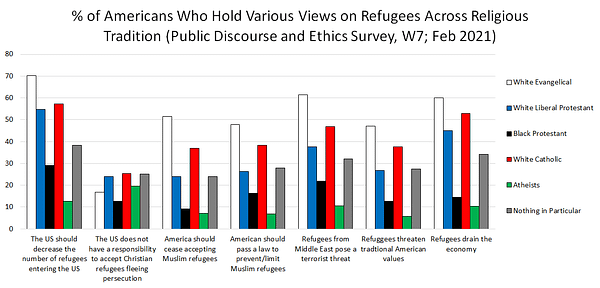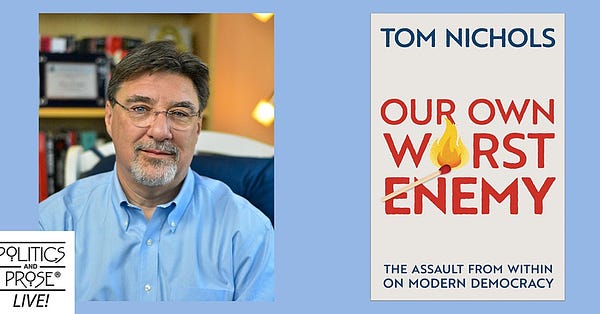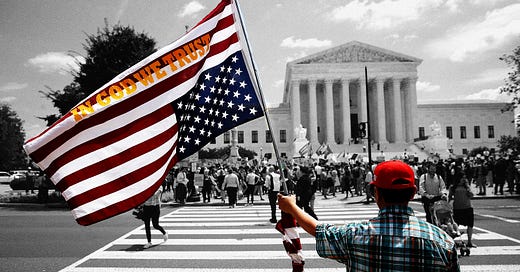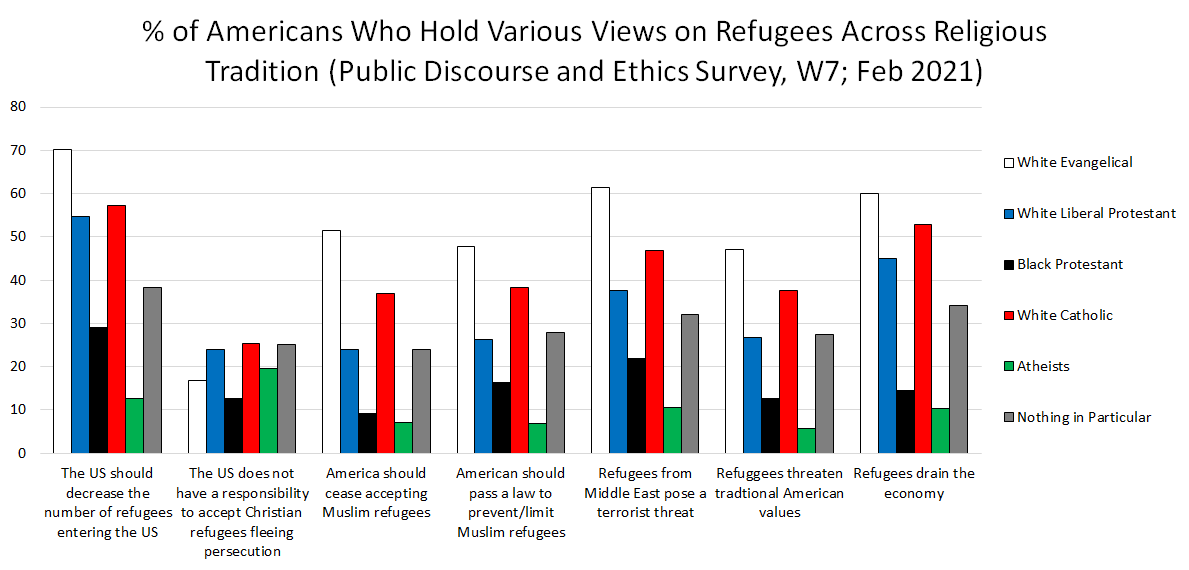Say, it ain’t so, Joe.
The president had a chance to extend and revise his remarks from earlier this week, but this is what we got:

It’s. Not. Good. And I say this as someone who supported, touted, and embraced Biden’s candidacy. Because competence, normalcy, decency, empathy.
So this is really hard to watch. And the reviews are predictably harsh.
“So you don't think this could have been handled -- this exit could have been handled better in any way, no mistakes?" Stephanopoulos asked Biden.
"No, I don't think it could have been handled in a way that, we're gonna go back in hindsight and look -- but the idea that somehow, there's a way to have gotten out without chaos ensuing, I don't know how that happens. I don't know how that happened," Biden replied….
Biden grew defensive when Stephanopoulos referred to the scenes of distress.
"We've all seen the pictures. We've seen those hundreds of people packed in a C-17. We've seen Afghans falling --"
"That was four days ago, five days ago!" Biden interjected.
So much wrongness there.
Some humility might have been helpful; as well as much more forceful determination to get all of our allies out. (Although he did say that he would extend the August 31 deadline to make sure all Americans got out.)
Instead, we were reminded of some hard truths about the man some of us thought might restore the soul of the country: He is a vastly better man and president than Donald Trump, but he’s got a long, long record of getting foreign policy wrong. And, as Peter Wehner reminds us today, despite his obvious empathy, Joe Biden also has a long history of callousness and betrayal in foreign policy.
Unfortunately, that includes his attitude toward our Afghan allies. Wehner writes:
According to my colleague George Packer’s biography of Richard Holbrooke, Obama’s special envoy to Afghanistan and Pakistan, Biden has argued that the United States does not have an obligation to Afghans who trusted the United States.
“We don’t have to worry about that. We did it in Vietnam. Nixon and Kissinger got away with it,” Biden told Holbrooke. Biden also “reportedly pushed back on the argument that America had a moral obligation to women in Afghanistan,” according to The Washington Post.
Wehner also sees a larger, more troubling pattern:
On national-security matters, President Biden lacks some of the most important qualities needed in those who govern—discernment, wisdom, and prudence; the ability to anticipate unfolding events; the capacity to make the right decision based on incomplete information; and the willingness to adjust one’s analysis in light of changing circumstances.
Look, Biden can still salvage something from this. But (and this is important) he’s going to need to hear from more of his friends — the people who know how important it is for his presidency to succeed — that he’s going to have do better.
**
BONUS:


Christianism vs. Christianity
I have questions.


Look at this chart more closely. White evangelicals are the least sympathetic to the plight of refugees, but white Catholics are not really all that far behind.
So, we are going to get a lot of this.


Of course, white evangelicals have been the most reliable part of the Trumpian anti-immigrant base for years. In 2018, a Pew Research Center poll that year found that 68 percent of white evangelicals believed that America had no responsibility to house refugees — 25 points over the national average.
But this raises a nagging question: What does “Christian charity” actually mean? especially when it comes to migrants, refugees, and other strangers.
As Joel Baden, a professor of Hebrew Bible at Yale Divinity School, points out:
All three of the great law codes of the Hebrew Bible in Exodus, Leviticus and Deuteronomy contain the same command regarding the treatment of the stranger. “When a stranger resides with you in your land, you shall not wrong him. The stranger who resides with you shall be to you as one of your citizens; you shall love him as yourself, for you were strangers in the land of Egypt” (Lev. 19:33-34).
The New Testament seems even clearer, as Jesus Christ describes the Last Judgment in Matthew 25:
2 For I was hungry and you gave me nothing to eat, I was thirsty and you gave me nothing to drink, 43 I was a stranger and you did not invite me in, I needed clothes and you did not clothe me, I was sick and in prison and you did not look after me.’
44 “They also will answer, ‘Lord, when did we see you hungry or thirsty or a stranger or needing clothes or sick or in prison, and did not help you?’
45 “He will reply, ‘Truly I tell you, whatever you did not do for one of the least of these, you did not do for me.’
There’s a lot more:
When they were few in number, of little account, and strangers in the land, wandering from nation to nation, from one kingdom to another people, he allowed no one to oppress them; he rebuked kings on their account, saying, ‘Do not touch my anointed ones; do my prophets no harm.’
1 Chronicles 16:19-22I was eyes to the blind, and feet to the lame. I was a father to the needy, and I championed the cause of the stranger.
Job 29:15-16The Lord watches over the strangers; he upholds the orphan and the widow, but the way of the wicked he brings to ruin.
Psalm146:9For if you truly amend your ways and your doings, if you truly act justly one with another, if you do not oppress the alien, the orphan, and the widow, or shed innocent blood in this place, and if you do not go after other gods to your own hurt, then I will dwell with you in this place, in the land that I gave of old to your ancestors forever and ever.
Jeremiah 7:5-7You shall allot it as an inheritance for yourselves and for the aliens who reside among you and have begotten children among you. They shall be to you as citizens of Israel; with you they shall be allotted an inheritance among the tribes of Israel.
Ezekiel 47:22Thus says the Lord of hosts: Render true judgments, show kindness and mercy to one another; do not oppress the widow, the orphan, the alien, or the poor; and do not devise evil in your hearts against one another.
Zechariah 7:9-10Contribute to the needs of the saints; extend hospitality to strangers.
Romans 12:13Let mutual love continue. Do not neglect to show hospitality to strangers, for by doing that some have entertained angels without knowing it. Remember those who are in prison, as though you were in prison with them; those who are being tortured, as though you yourselves were being tortured.
Hebrews 13:1-3
So how do we explain the indifference of so many “Christians,” including those who often freely cite scripture when it confirms their priors?
Diana Butler Bass, an American church historian and scholar who focuses on the history of the American church, tried to explain the phenomenon to Vox a while back. One "easy answer”, she said, was the secularization of the white evangelical community “and how it functions as an arm of the Republican Party... taking talking points and marching orders from the people who have the loudest voices in the Republican Party.”
But, she also noted another turn toward a non-literal reading of the Bible’s invocation to help the poor and the stranger. This included redefining “what seemed like very basic ... verses about the care of the poor and caring for the outcast. On one hand, they might say, ‘Oh, you know, Jesus was born of a literal virgin’ ... but when it comes to these verses about the poor and about refugees, in particular, all of a sudden, literalism disappears.”
Suddenly, she said, she noticed a “new sort of interpretation that’s floating around in evangelical circles about [verses in the Bible where Jesus exhorts care for the poor]. And the interpretation is Jesus does not mean everybody. That Jesus only means that you’re supposed to take care of the ‘least of these’ who are in the Christian community.”
**
This is less Christianity than it is “Christianism,” a term coined by Andrew Sullivan nearly two decades ago. "I have a new term for those on the fringes of the religious right who have used the Gospels to perpetuate their own aspirations for power, control and oppression: Christianists.”
The shift is not confined to this country. As blogger Ben Ryan notes, populist leaders around the globe have embraced a new Christianism in which Christianity is transformed into “a defining feature of national purity. As with the idea of Islamism this has little, if any, theological depth to it, but it is the application of Christianity to a political ideology, one that establishes the pure people against outsiders.”
Sullivan himself updated the concept last December, noting that "Christianists now believe that Trump has been selected by God to save them from persecution and the republic from collapse...This belief is now held with the same, unwavering fundamentalist certainty as a Biblical text."
As we watch the debate over refugees unfold, keep in mind this distinction: Christianism should never be confused with actual Christianity.
TONIGHT!
Apologies for jumping the gun yesterday. My book chat with Tom Nichols is tonight:


Quick Hits
1. “Herd Immunity” Is the Pandemic’s Wrongest Theory
Tim Miller writes in today’s Bulwark:
The herd immunity hipsters over at the Federalist were the first to the game with their notorious March 2020 article calling for “chickenpox parties” for COVID. But the blowback from that and the increasing death toll didn’t slow their roll.
In April 2020, an anonymous “academic physician and researcher” argued in the Federalist against physical distancing guidelines, making the case for rushing toward herd instead. The author at least had the honesty to concede that “if we had a vaccine, everything would be different.” That’s true: the promise of vaccines undermines entirely the logic of the natural herd immunity argument.
Which is what’s so striking about Federalist editor Joy Pullman’s July 2020 article. “Herd immunity is exactly what the spike in cases indicates is developing, and we need it to continue,” she wrote. Some 400,000+ deaths later, safe to say she sure got her wish on the second part. But Pullman, like the anonymous doctor, bases her argument on the supposed unavailability of a vaccine “anywhere in our near future, if at all”—even though Donald Trump had already said a vaccine would likely be ready by the end of the year.
By New Year’s Eve The Federalist gang was certain that the glorious conclusion of their national chickenpox experiment was nigh, and republished a RealClear article from a distinguished scientist, Robert M. Kaplan, stating that some states were at long last on the cusp of herd immunity.
Alas it was not to be.
2. History Will Judge Biden Harshly. Biden Himself Said So.
President Biden lamented the failure this week of what he described as “our decades-long effort to overcome centuries of history and permanently change and remake Afghanistan.”
Then he made a startling claim. “I wrote and believed it never could be,” he said.
He went further: “Our mission in Afghanistan was never supposed to have been nation building,” the president insisted at the White House on Monday. “It was never supposed to be creating a unified, centralized democracy.”
But Biden wrote and believed the opposite. As chairman of the Senate Foreign Relations Committee after the Sept. 11, 2001, attacks, Biden pressed then-President George W. Bush to spend vastly more on building institutions to promote a unified, centralized democracy.
“History is going to judge us very harshly, I believe, if we allow the hope of a liberated Afghanistan to evaporate because we are fearful of the phrase ‘nation-building,’” Biden said in a February 2002 speech to the Center for Strategic and International Studies.
Biden’s attempt to memory-hole dozens of other sound bites like this illustrates that he was for nation building before he was against it. More significantly, the revisionism is a reminder of Biden’s erratic path on some foreign policy matters and suggests he has internalized the wrong lessons as he surrenders in our longest war. The fall of Kabul doesn’t necessarily discredit nation building; if anything, it underscores the importance of doing it correctly.








